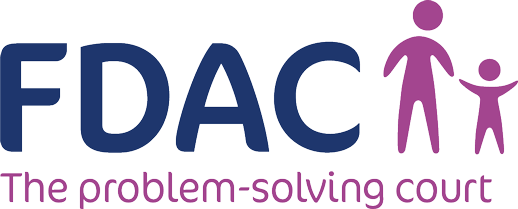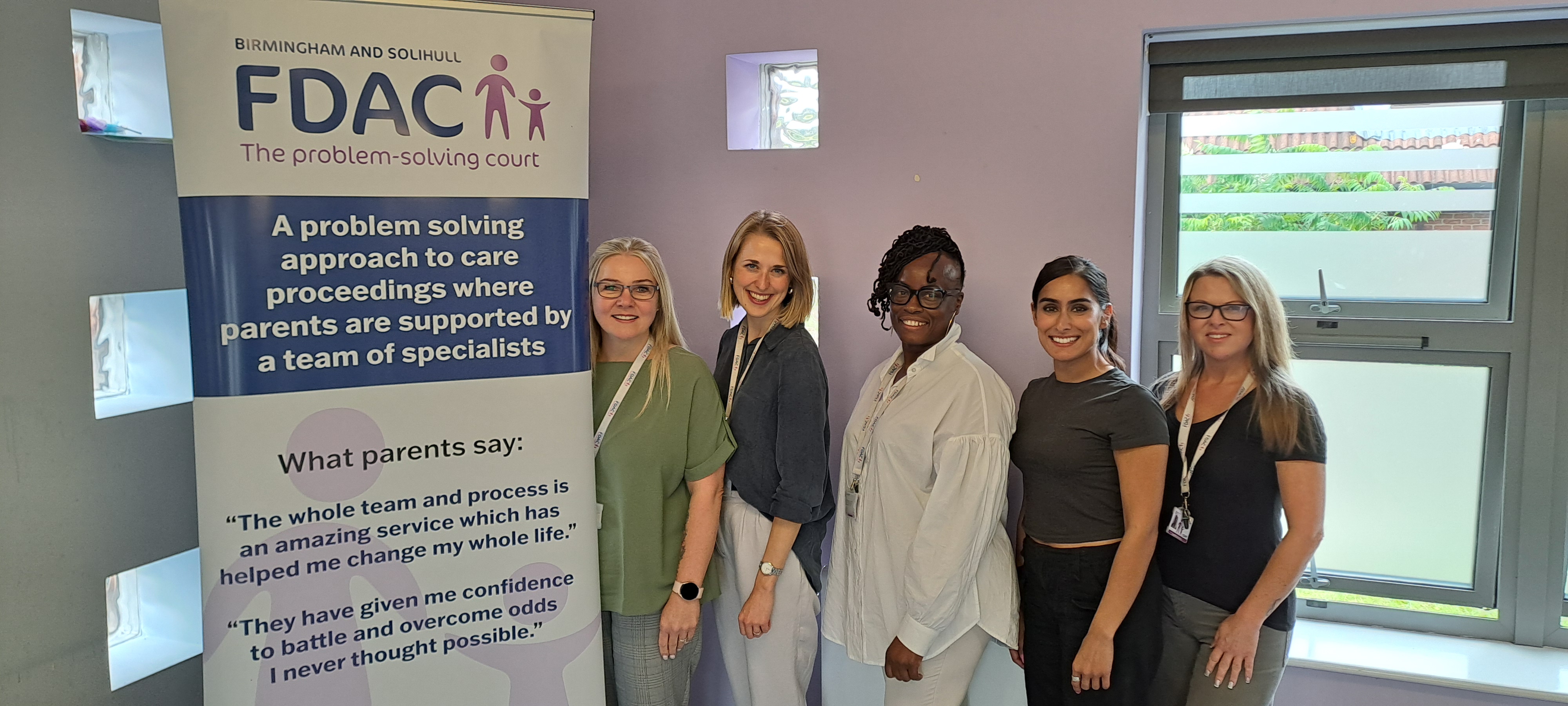"I was a mother again. I had lost that": How FDAC is empowering women to overcome addiction
 Published: 29th Aug 2024
Published: 29th Aug 2024
The Family Drug and Alcohol Court (FDAC) is an alternative model for care proceedings, giving parents the support and understanding they need to turn their lives around themselves...
Kelly, Tracey and Al-Christine are three mothers who had their children taken into care. At the time, all three were addicted to drugs and alcohol.
Through FDAC, the Family Drug and Alcohol Court, they have each overcome that addiction, along with abusive relationships, mental health issues and difficult housing situations, to be reunited with their families.
They are just some recent examples of the many success stories being achieved from a small, lively hub between Kings Heath and Stirchley, where parents come for regular appointments with the Birmingham and Solihull FDAC team, which includes mental health, addiction and acupuncture specialists.
Visiting, it felt like one close-knit family itself.

The Birmingham and Solihull FDAC Team
Al-Christine, a mother of five, said: “They reassured me and encouraged me to be the person I can be. At first, I was like, you know what, I’m never going to change. This isn’t going to work for me. I’m never going to get my kids back. I lied and lied at first. But I realised I had to be honest and open if I wanted to get my children back.”
From its inception in 2021 to 2024, Birmingham and Solihull FDAC has reunited 69% of children with one or both parents, or their family and friends. Of those, 88% were positive reunifications with no further court proceedings.
As for the parents, 58% stopped misusing substances over the three years and 63% did not lapse or relapse.
“I’ve done everything they asked and now I’m staying clean, staying positive and having my kids back home is a really, really, good feeling. Working with FDAC was brilliant: it was very encouraging knowing there was someone who could show me the light at the end of the dark tunnel I was in.”
The initial apprehension is understandable: parents are committed to fortnightly court appearances and regular drug tests. Even more so given they must both come to terms with and re-evaluate their roles as mothers.
“You have to relearn how you are being a mom to your kids,” Al-Christine added. “You have to see it from your kids’ eyes. That’s how we learn together in the parenting group. It was a breathtaking moment for me when my baby came home. I was a mother again. I had lost that.”
It was a similar journey for Kelly, who admitted: “When I first got here, I just wanted to tick all the boxes and get out of the door. It was scary for me. But without FDAC, I don’t know how I would have gotten my son back. I’m really glad I’ve been through this process because it’s made me identify what type of person I am and what fight I had in me to change things.”
With a familiar judge who sees their personal growth in real time, from beginning to end, it becomes a way for FDAC parents to stay accountable and on track towards their ultimate goal. For Tracey, this meant not only reuniting with her son but “getting well, being well and staying well”.
The process has taught her to accept and take ownership of her past, surrender to the fact she cannot use again if she wants to keep her child, and become more reflective and responsive to her emotions in the future.
Tracey acknowledged the transformative effect, stating that: “You build up a rapport with the judge. And they get to see your progress every two weeks. Judge Birdie was amazing. He’s amazing. He knew the process, knew me and knew how far I’d come.
“FDAC can only report on what you do. And if you mess up, they put in a non-lawyer review and you have to answer to the judge. But it’s not really about that, it’s about answering to yourself.”
Remarkably, over the three years, there have been 952 non-lawyer reviews and case management hearings. 99% of them were attended.
“I was determined, even in my addict state, to get my child back,” Kelly said. "I was broken. Completely broken. But I just needed someone to see in me, see that glimpse, of what I could do. That I could do it.”
This is perhaps the most important aspect of the FDAC process: the empowerment. They are willing to trust in the parent’s capacity to change when others aren’t.
“Beyond using drugs and alcohol, I wanted people to see that there’s a person in there. That’s a hard thing, getting people to see you for who you are. That’s what FDAC do. That’s what FDAC brings out of you," she concluded.
As their statistics and testimony proves, more often than not, that trust is repaid in full.
You can find out more about FDAC here.